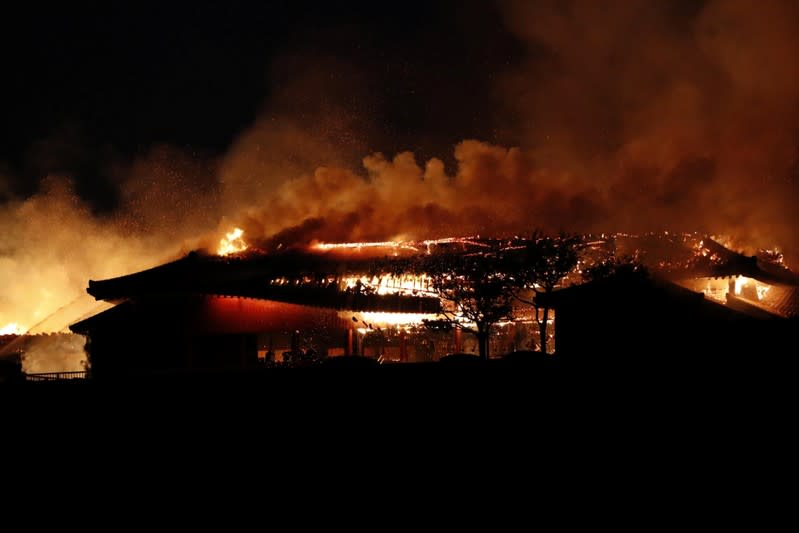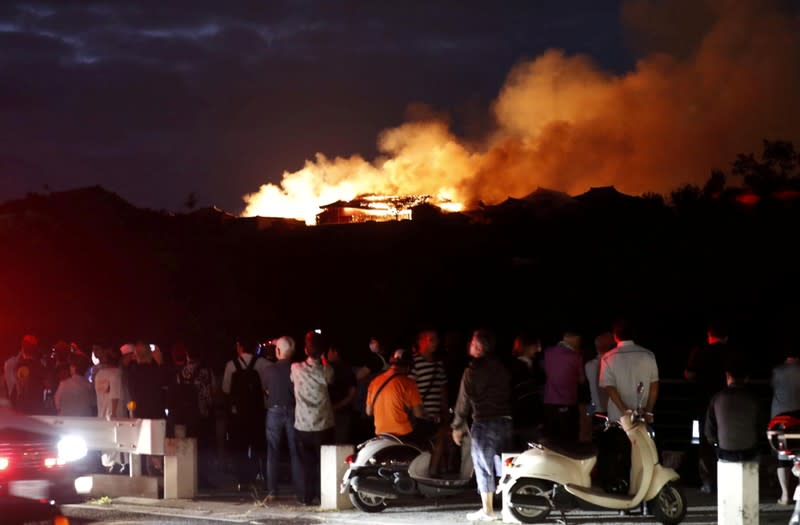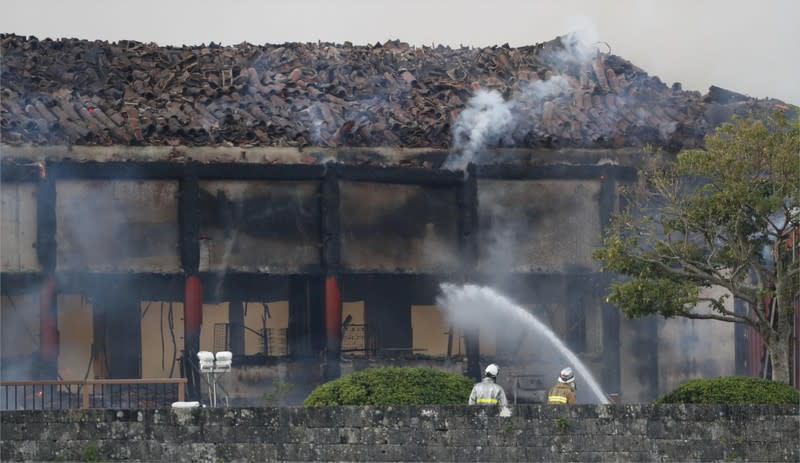Fire destroys Japan's World Heritage-listed Shuri Castle
TOKYO (Reuters) - A fire tore through World Heritage-listed Shuri Castle in Japan's southern island of Okinawa on Thursday, reducing the main hall of the more than 500-year-old landmark to a charred skeleton.
The wooden castle, once a palace and cultural heart of the Ryukyu Kingdom which flourished from the 15th to 19th century, burned for around 12 hours until firefighters brought it under control in the afternoon.
The castle has been damaged by fire and rebuilt several times. It was last destroyed during World War 2, and its restoration was a symbol of recovery for Okinawa, which suffered heavy casualties as a site of heavy fighting between U.S. and Japanese forces.
"My heart is full of pain and a feeling of indescribable loss," said Okinawa governor Denny Tamaki, who cut short a South Korea trip to deal with the fire. "At the same time, I feel strongly that we must rebuild Shuri Castle, a symbol of the Ryukyu Kingdom, an expression of its history and culture."
Television showed local residents and tourists, some praying and in tears, watching as smoke billowed from the remains of the once bright-red castle.
The fire engulfed the popular tourist attraction in the middle of its annual mid-autumn festival. The castle was also a scheduled stop on the 2020 Tokyo Olympic torch relay route.
The city's fire department said that while the castle had exterior sprinkler systems, its halls were not so equipped as this was not required under local fire codes.
After World War 2, it served as a university campus until the mid 1970s. Following post-war reconstruction, it re-opened as a national park in 1992 and was designated a World Heritage site in 2000.
"Deep emotion and sincere solidarity with the Japanese people," Unesco Director-General Audrey Azoulay commented on Twitter. "This is a loss for all humanity."
In addition to the main hall, the north and south halls have been destroyed, NHK said.
(Reporting by Ritsuko Ando, Chang-Ran Kim and Naomi Tajitsu; Editing by Stephen Coates and Chizu Nomiyama)




